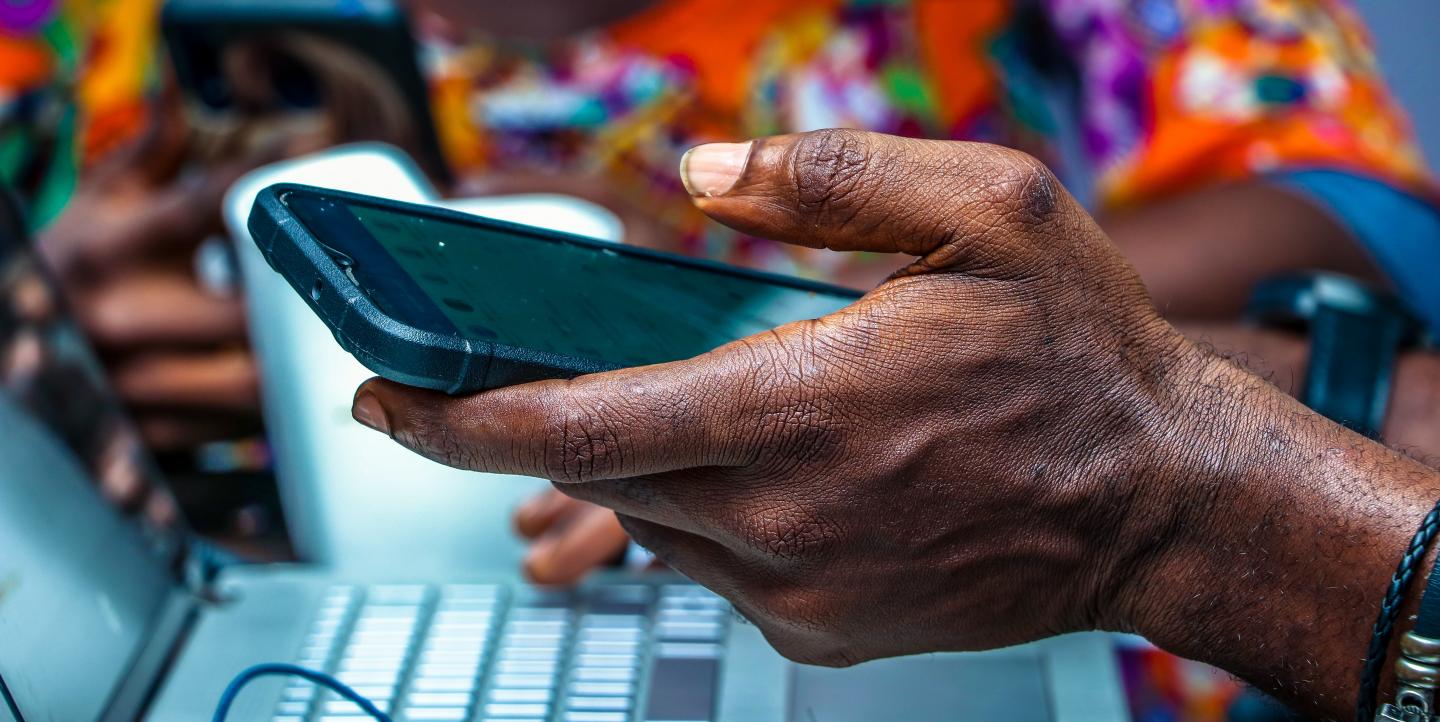Media repression is growing in Nigeria. Journalists, editors and media proprietors have witnessed state supervised surveillance, arrest and even physical assault from 2015 to date.
In 2019, Nigeria was ranked 120 out of 180 on the World Press Freedom Index published by Reporters Without Borders.
To stay safe and resilient, and to keep reporting malfeasance in government, newsrooms and journalists in the country are adopting simple but strategic methods.
Plan ahead, said video journalist Victor Olugbenro who was arrested on Aug. 5, 2019, for covering an anti-government protest in Lagos. "Every journalist who tells the truth is at risk of attack. So they need to be ready because anything can happen," he said.
After the arrest of his boss, Omoyele Sowore, founder at SaharaReporters, days before his own arrest, Olugebenro said he had contingency plans.
"Days before I was arrested, I told my mum that my boss had been arrested and I may be next. In planning for the worse case scenario, you can prepare the mind of family in advance to ease the shock and trauma for them,” he said. “Find a human rights lawyer who will always be on standby to defend you, two trusted contacts who know your whereabouts at all times and have an emergency number memorized.”
"One thing I also did during my arrest, which attracted attention, was that I screamed and identified myself so that passers-by and other journalists around would who I was," he added.
For undercover investigative journalist Fisayo Soyombo, head of investigations at Business Day and former editor at the International Center for Investigative Reporting (ICIR), TheCable and SaharaReporters, taking extra precautions is key.
Go undercover, in order to keep reporting factual and timely stories that have the potential for change.
"I adopt undercover approach oftentimes. This is because my face is not so unknown anymore. With the investigative report I’m currently working on, for example, I had to alter my looks. Anything else, I know I’d be found out," says Soyombo who recently went undercover in the Nigerian Correctional Service to expose corruption, and was almost arrested by the Nigerian government for doing so.
"It’s quite a strenuous process, but I think it’s worth it. I know I can’t afford to leave anything to chance," he said.
Work remotely. The internet has made it possible for journalists to conduct business without convening in a physical space. This minimizes the risk of targeted raids, arrests and intimidation.
When armed policemen stormed the Nigerian facility of citizen journalism website SaharaReporters in Lagos, Managing Editor Eric Dumo and his team already had a solid strategy in place to evade arrest. After a mandate from their headquarters in New York to work remotely, many of the staff was out of the office.
Dumo added, "We have mastered the art of staying above government’s blackmail by avoiding to attend their events where we may be targets, while still giving adequate coverage to their important activities.
"Above all, our team members have learned not to unnecessarily expose themselves on social media and other platforms or avenues that can easily give them away as SaharaReporters journalists."
Cultivate and maintain strong leads and sources who can reach you on secure digital platforms in order to work remotely. "Our core mandate is exposing corruption and injustice in Nigeria and beyond,” said Dumo. “Therefore in this regard, we have maintained a strong network of sources that continue to throw important leads at us, trusting that we will do justice to such clues.”
Fight back. Richard Oludare, a reporter with Nigeria's Guardian Newspaper in Abuja was brutally assaulted by Nigeria's State Security Service (SSS) when he was on assignment at a protest on Nov. 12, 2019. His strategy for resilience is remaining defiant.
"Giving way to the culture of silence will only continue to erode the tenets of peace and civilization as we know it,” he said. “It does not get better with silence, especially where a constitution exists.”
"Every journalist must align himself or herself with the understanding of the law, and several legal authorities," he said.
Learn to secure your gadgets. Video journalist Victor Olugbenro says this is the only way to cover your tracks and ensure safety from manipulation that may occur on your device, or that may aid in tracking your location.
"I never leave my phone location on. I also make sure to block all apps that may give away my location at any time,” he said. Journalists should study digital security for phones, use secure chat apps such as Signal and ensure that they have the latest technology to secure their devices.
"When I was arrested, they took my phone for more than 24 hours. When I got it back, I knew they would have tampered with it, so I got an alternative device which I use to make sensitive work-related calls.”
Main image CC-licensed by Unsplash via Olumide Bamgbelu.
Senami Kojah is a Nigerian investigative journalist and news editor at Saharareporters.com. She is a 2019 Climate Tracker Online Data Journalism Fellow.


